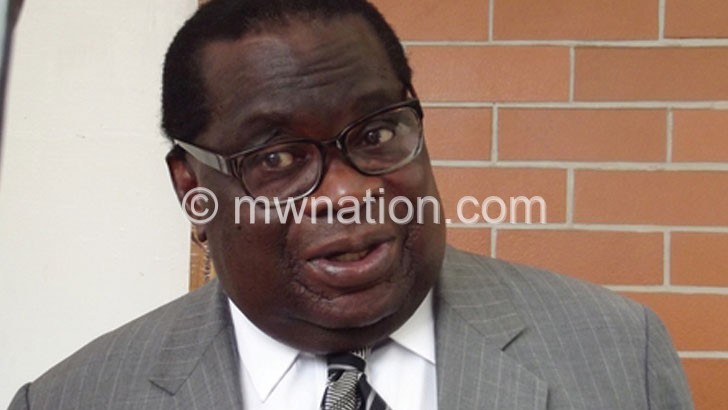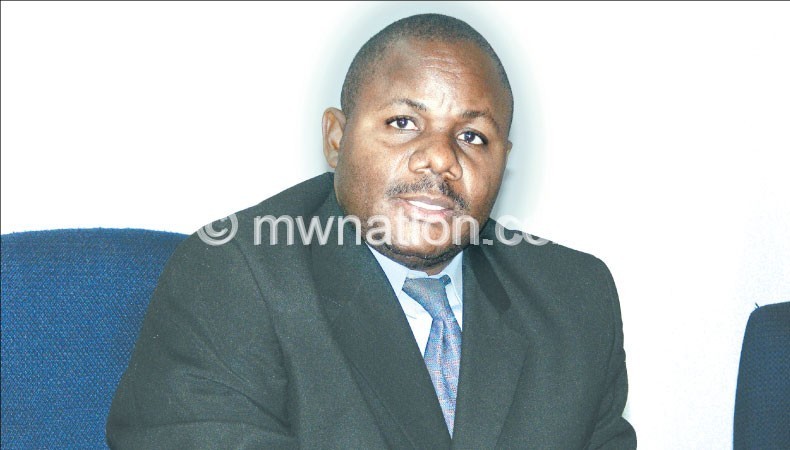BAM cautions on kwacha gain
Hold on! This is the message from the Bankers Association of Malawi (BAM) to those who are rejoicing at the recent appreciation of the kwacha.
BAM president Misheck Esau, in a statement on Thursday, said those celebrating the strengthening of the local currency should do so with caution to avoid disappointment “very soon” as the fundamentals that make the local unit unstable remain untackled and unchanged.
University of Malawi’s Chancellor College economics professor Ben Kaluwa in an interview on Wednesday projected that the kwacha could appreciate up to K620 against to the dollar soon.

reached equilibrium
He backed Minister of Finance, Economic Planning and Development Goodall Gondwe that the kwacha may have has bottomed out, or has reached an equilibrium point, and hinted that it may substantially gain value.
Kaluwa said the gain will be on account of tobacco proceeds, low demand for the dollar after private traders and government have imported farm inputs.
Gondwe, in the 2015/16 Mid Year Review Budget Review Statement two weeks ago said it was expected the kwacha exchange rate will stabilise, warning speculators who were perpetuating the depreciation to take note.
Currently, the kwacha is gaining against major foreign currencies, according to rates in some authorised dealer banks (ADBs).
As of Thursday, the kwacha traded at K719, K788 and K47 against the dollar, euro and South African rand from a high of K765, 788 and K50 respectively two weeks ago.
But Esau argued that the negative balance of payments gap in excess of $1.4 billion still remains, a factor that may see kwacha lose its grip again soon.

to predict
He said: “When the currency appreciates, it is usually on account of the temporal episodes of liquidity squeeze in the banking sector. When liquidity rebounds, watch the space. My view is that if demand management economics (Malawi’s style of monetary policy) works in this country, then it should help us reduce inflation and interest rates which have been too high for too long for business to thrive.
“My memory is still fresh when government boosted foreign reserves through some transaction and we were assured of exchange stability, which has not been realised. If that transaction, which I must admit [was] innovative, was a permanent solution to the local currency instability, then we should not have reached K765 to the dollar in February 2016 from around K420 in 14 months from December 2014.”
Esau, who is also chief executive officer of CDH Investment Bank (CDHIB), warned it is not easy to predict how long the exchange rate recovery holds, contending that unless Malawi boosts it production lines, the volatility of the kwacha will continue.
“Production is the answer. The day Malawi produces surpluses for consumption and export is the day our currency can start to enjoy stability,” he said. n






The kwacha will start appreciating driven primarily by the tobacco sales seasons (exports) coupled with brokerage speculators. In June all maize prices will be at their lowest across the country and the kwacha will be on its way to significant appreciation.
Tobacco sales will continue to boost our Kwacha which is in an awkward situation. I wonder why we Malawians are poor and fail to stablise the kwacha. Malawi has a lot of lakes , rivers, wetlands which can be used for intensive irrigation farming. we need to have this slogan in mind “Produce more, export more, import less”.
Our country resources (i.e. uranium, coal, nobium e.t.c) are not benefiting Malawi because of corruption. A lot of dollars are secretly transferred to external accounts by company owners. If this is not solved by reviewing our weak policies, the kwacha will be unstable just like that. T